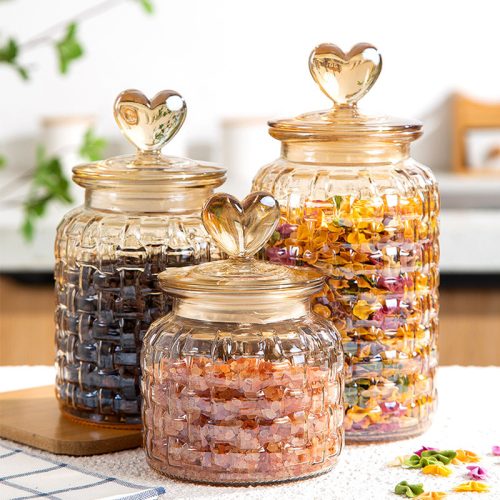Borosilicate glass, a remarkable material with unique properties, has been gaining popularity for its use in heat-resistant containers, and for a good reason. In this article, we will explore the science behind borosilicate glass and understand why it is the perfect choice for containers that can withstand extreme temperatures.
1. The Composition
Borosilicate glass gets its name from its composition, which includes boron trioxide (B2O3) in addition to silica (SiO2). This addition of boron brings about a crucial alteration in the glass’s molecular structure. The boron atoms create a cross-linked network within the glass, making it more resilient and heat-resistant compared to standard soda-lime glass.
2. Thermal Expansion Coefficient
The key factor that sets borosilicate glass apart is its low coefficient of thermal expansion (CTE). This scientific parameter measures how much a material expands or contracts when exposed to temperature changes. Borosilicate glass has an exceptionally low CTE, which means it can handle extreme temperature fluctuations without cracking or shattering.
3. Resistance to Thermal Shock
Borosilicate glass’s ability to resist thermal shock is one of its standout qualities. This means it can endure rapid and drastic changes in temperature without breaking. Regular glass, in contrast, is more susceptible to thermal stress, making it unsuitable for applications involving extreme temperature variations.
4. High Softening Temperature
Another scientific advantage of borosilicate glass is its high softening temperature. It can withstand much higher temperatures before reaching its softening point compared to standard glass. This property makes it an excellent choice for containers that are subjected to oven or stovetop use.
5. Exceptional Clarity and Transparency
Borosilicate glass maintains its exceptional clarity and transparency, even at high temperatures. This quality is crucial when using it for bakeware, as it allows you to monitor the cooking process without the risk of clouding or distortion.
6. Chemical Inertness
Borosilicate glass is non-reactive with most chemicals and is known for its inertness. This means it won’t absorb or release odors, flavors, or substances from the contents, ensuring the purity and taste of your food.
7. Safety and Health Benefits
Borosilicate glass is a safe choice for heat-resistant containers due to its inert nature. It doesn’t leach harmful chemicals into food, making it a healthier option compared to some plastics.
In conclusion, the science behind borosilicate glass explains why it is perfect for heat-resistant containers. Its unique composition, low thermal expansion coefficient, resistance to thermal shock, high softening temperature, and other exceptional properties make it the ideal choice for baking, roasting, and reheating. When you invest in borosilicate glass cookware, you’re not just acquiring a versatile kitchen tool – you’re also benefiting from the fascinating science that makes it possible to cook and store food safely and effectively.


